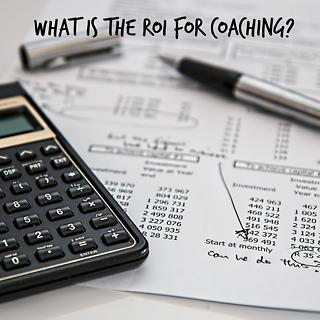What is the ROI for coaching?
Posted by Nicole Coyne on May 12, 2017

An interesting question came up the other day. “By investing in coaching for your team members, how do you measure your return on investment? “
This is a really good question and it depends on the expectations of the person asking the question. If your business is looking for a quick result or wanting to get profits up with very little work, then implementing a coaching programme within your business will not be the answer.
Coaching is not a quick fix and a coaching programme should never be started in a business if there is an expectation of a speedy outcome similar to that of a quickie month-end promo to boost sales. If this is the case, then the coaching programme will fail as it has been implemented for the wrong reason. Coaching initiatives need to be given time, especially if it involves all team members within the business.
With a quick-turn-around-sales-boosting expectation in mind, some companies choose not to implement coaching, as they say it doesn’t work. Sad and short-sighted.
So coming back to the original question. “By investing in coaching for your team members, how do you measure your return on investment? “
The best way to answer this question is to provide you with some feedback from business owners and managers who have actually invested in their teams and therefore their business by implementing a coaching programme.
- Employee retention – Happy, focused and motivated employees don’t look for alternative employment. Engaged employees who understand what their role is and who understand that they are valued are focused on their tasks and looking for ways to move up within your business, not ways to move out of the business. These are loyal and driven individuals who you want on your team.
If you want to talk costs, then think about this – If you are constantly employing, training and inducting new people into your business, it is costing you precious time and recruitment costs. Depending on the job, a new person can take up to 9 months to become 100% productive in their new position. I won’t get started on the negative impact it has on business morale when there is constant change of team dynamics going on, that’s for another blog post.
- Decrease in customer complaints – Happy, focused and motivated employees understand it is in their best interest to look after the customer. They understand consequences to their actions. As complaints go down, we see compliments go up.
- Business image – You just need to look at the top companies to work for in the world. The best employees aspire to work for these companies and customers are attracted to do business with them due to the work ethic and energy of these businesses. These companies are also rated as the best companies to work for by their employees as they invest in the teams.
The net result of the above is that there is actually a financial benefit to coaching. With these solid foundations in place your bottom line will look after itself. Now that’s a great return on investment!

Nicole Coyne
Nicole is a certified professional coach as well as a certified trainer, advanced assessor and coach mentor.
Based in Auckland, she provides a range of coaching options, from individual business owner and management coaching, group and team coaching workshops to personal coaching. Her coaching practice is aligned to the ICF ethos and ethics.
Contact Nicoleto hire a professional coach.
